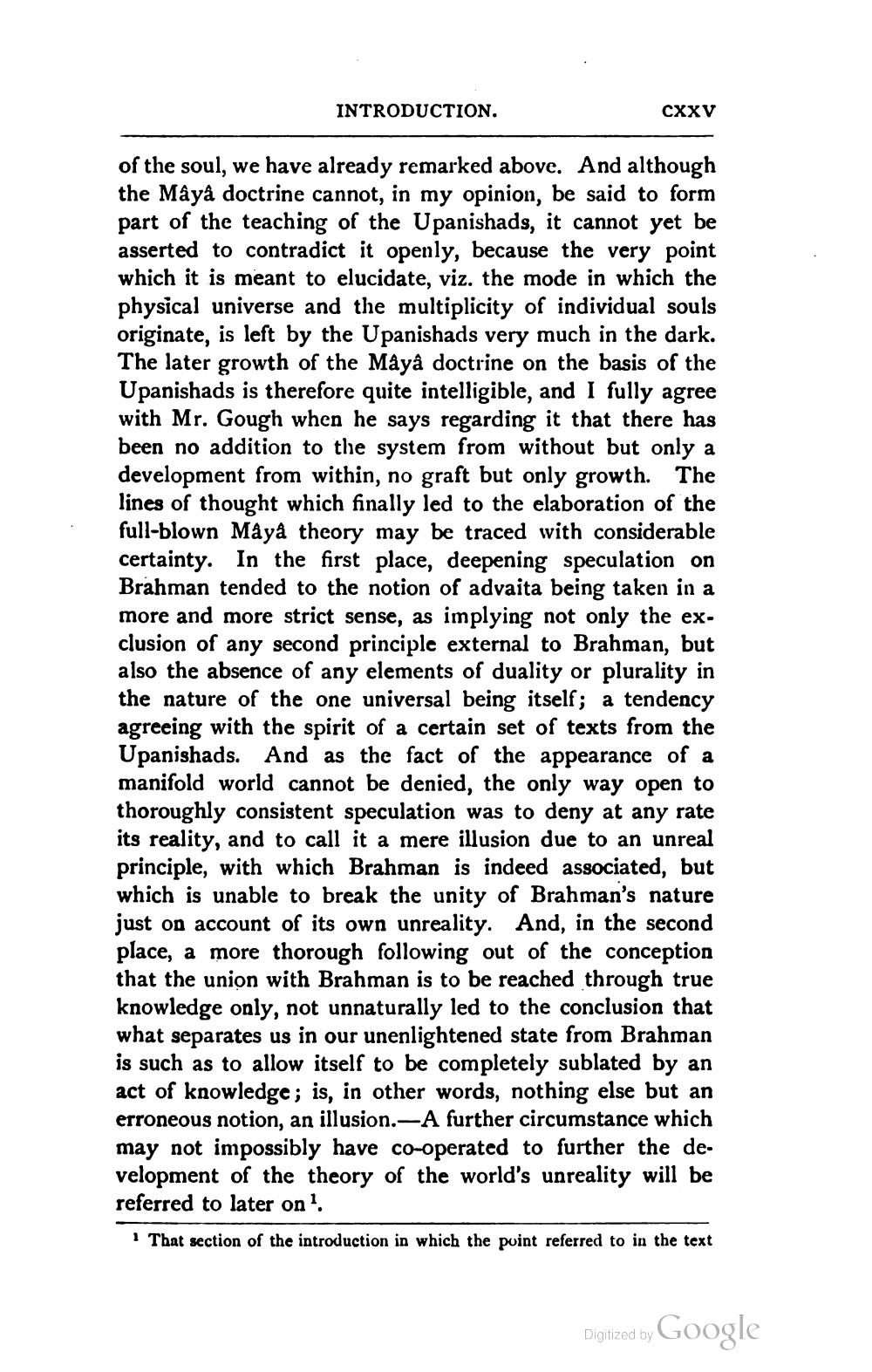________________
INTRODUCTION.
CXXV
of the soul, we have already remarked above. And although the Mâyâ doctrine cannot, in my opinion, be said to form part of the teaching of the Upanishads, it cannot yet be asserted to contradict it openly, because the very point which it is meant to elucidate, viz. the mode in which the physical universe and the multiplicity of individual souls originate, is left by the Upanishads very much in the dark. The later growth of the Måyå doctrine on the basis of the Upanishads is therefore quite intelligible, and I fully agree with Mr. Gough when he says regarding it that there has been no addition to the system from without but only a development from within, no graft but only growth. The lines of thought which finally led to the elaboration of the full-blown Mayà theory may be traced with considerable certainty. In the first place, deepening speculation on Brahman tended to the notion of advaita being taken in a more and more strict sense, as implying not only the exclusion of any second principle external to Brahman, but also the absence of any elements of duality or plurality in the nature of the one universal being itself; a tendency agreeing with the spirit of a certain set of texts from the Upanishads. And as the fact of the appearance of a manifold world cannot be denied, the only way open to thoroughly consistent speculation was to deny at any rate its reality, and to call it a mere illusion due to an unreal principle, with which Brahman is indeed associated, but which is unable to break the unity of Brahman's nature just on account of its own unreality. And, in the second place, a more thorough following out of the conception that the union with Brahman is to be reached through true knowledge only, not unnaturally led to the conclusion that what separates us in our unenlightened state from Brahman is such as to allow itself to be completely sublated by an act of knowledge; is, in other words, nothing else but an erroneous notion, an illusion.—A further circumstance which may not impossibly have co-operated to further the de. velopment of the theory of the world's unreality will be referred to later on.
That section of the introduction in which the point referred to in the text
Digitized by Google




